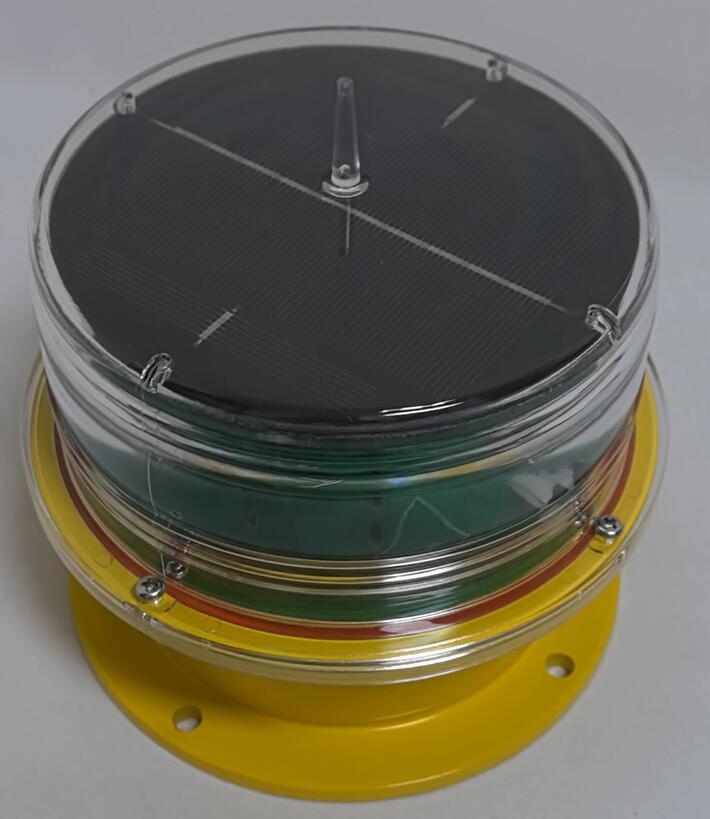Harnessing the Sun: The Rise of Solar Marine Lanterns in Modern Navigation
In the ever-evolving world of maritime technology, solar marine lanterns have emerged as a beacon of innovation, offering a sustainable and efficient solution for navigation and safety at sea. These lanterns, powered by the sun, are revolutionizing the way we approach marine lighting, providing a reliable and eco-friendly alternative to traditional power sources. This article delves into the significance, benefits, and future prospects of solar marine lanterns, highlighting their transformative impact on the maritime industry.
The Significance of Solar Marine Lanterns
Solar marine lanterns are not just another addition to the array of marine equipment; they represent a paradigm shift in how we think about energy consumption and environmental responsibility. Traditional marine lanterns, often powered by batteries or fuel, have long been a staple in maritime navigation. However, their reliance on non-renewable energy sources and the associated maintenance costs have posed significant challenges. Solar marine lanterns, on the other hand, harness the power of the sun, a limitless and clean energy source, to provide consistent and reliable illumination.

The significance of these lanterns extends beyond their energy efficiency. They play a crucial role in enhancing maritime safety. By ensuring that navigational aids remain operational even in remote or off-grid locations, solar marine lanterns help prevent accidents and ensure the safe passage of vessels. This is particularly important in areas where access to traditional power sources is limited or non-existent.
Benefits of Solar Marine Lanterns
The benefits of solar marine lanterns are manifold, making them an attractive option for maritime operators and environmentalists alike.
| solar marine lanterns |
| solar marine lantern |
Sustainability: Solar marine lanterns are powered by renewable energy, reducing the carbon footprint of maritime operations. This aligns with global efforts to combat climate change and promote sustainable practices.
Cost-Effectiveness: While the initial investment in solar marine lanterns may be higher than traditional lanterns, the long-term savings are substantial. With no need for fuel or frequent battery replacements, the operational costs are significantly reduced.
Low Maintenance: Solar marine lanterns are designed to be durable and require minimal maintenance. This is particularly advantageous in harsh marine environments where regular maintenance can be challenging and costly.
Reliability: Equipped with advanced battery storage systems, solar marine lanterns can operate continuously, even during periods of low sunlight. This ensures that navigational aids remain functional at all times, enhancing safety at sea.
Versatility: Solar marine lanterns can be deployed in a variety of maritime settings, from busy shipping lanes to remote coastal areas. Their adaptability makes them suitable for a wide range of applications, including buoys, lighthouses, and offshore platforms.
The Future of Solar Marine Lanterns
As the maritime industry continues to embrace sustainable technologies, the future of solar marine lanterns looks promising. Advances in solar panel efficiency, battery storage, and LED technology are expected to further enhance the performance and reliability of these lanterns. Additionally, the integration of smart technologies, such as remote monitoring and control systems, will enable more efficient management of marine lighting infrastructure.
The adoption of solar marine lanterns is also likely to be driven by regulatory changes and increasing environmental awareness. Governments and international organizations are increasingly mandating the use of renewable energy sources in maritime operations, creating a favorable environment for the growth of solar marine lanterns.
Moreover, the potential for solar marine lanterns to contribute to the development of smart ports and autonomous shipping cannot be overlooked. As the maritime industry moves towards greater automation and digitalization, the role of reliable and sustainable navigational aids will become even more critical.
Solar marine lanterns are more than just a technological innovation; they are a testament to the maritime industry's commitment to sustainability and safety. By harnessing the power of the sun, these lanterns offer a reliable, cost-effective, and environmentally friendly solution for marine navigation. As the world continues to grapple with the challenges of climate change and resource depletion, solar marine lanterns stand out as a shining example of how technology can be leveraged to create a more sustainable future.
In the years to come, the adoption of solar marine lanterns is expected to grow, driven by technological advancements, regulatory support, and a collective desire to protect our oceans. As we navigate the waters of the 21st century, solar marine lanterns will undoubtedly play a pivotal role in guiding us towards a brighter, more sustainable future.
